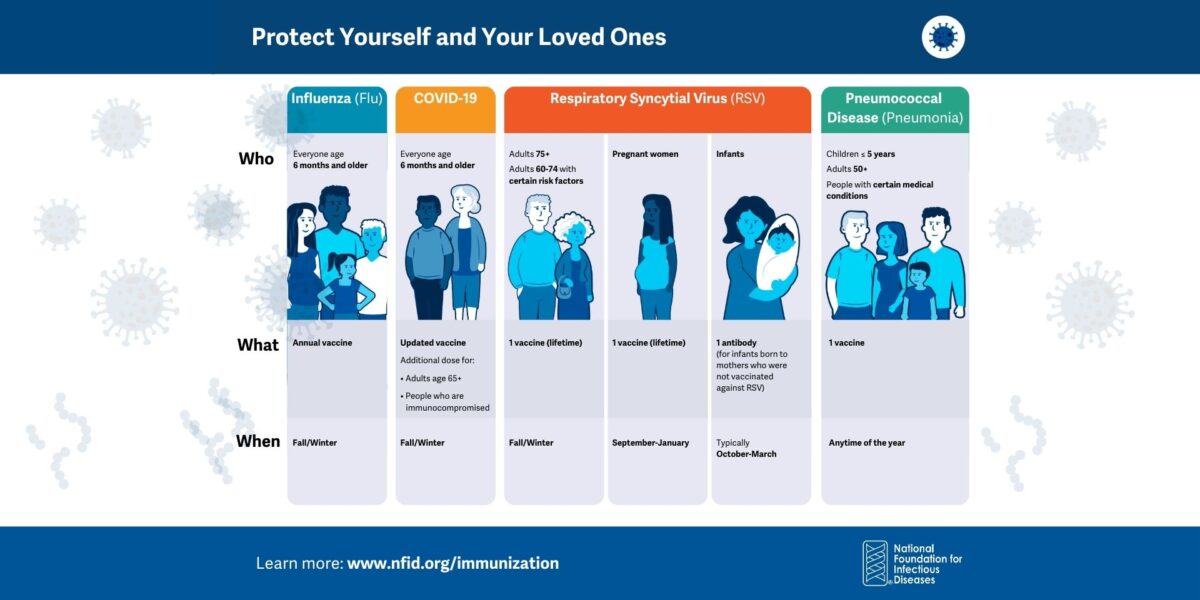NFID promotes the Centers for Disease Control and Prevention (CDC) Take 3 approach to help protect individuals and communities against influenza (flu) and other preventable diseases.
1. Get an annual flu vaccine
An annual flu vaccine is recommended for everyone age 6 months and older. Getting a flu vaccine each year is important to protect yourself and those around you from flu.
2. Practice healthy habits
- Stay home if you are sick and avoid contact with sick people
- Cover your coughs and sneezes
- Wash your hands often with soap and water or use an alcohol-based hand sanitizer
- Wearing a mask is an additional step you can take to further protect yourself and those around you
- Clean frequently touched surfaces
3. Take flu antiviral drugs if prescribed
- If you do have flu symptoms and are at increased risk for complications, are very sick, or are worried about your illness, call a trusted healthcare professional as soon as possible. Take a flu antiviral if prescribed to help make your illness milder, shorten the time you are sick, and prevent serious flu-related complications.
Don’t be a dreaded spreader. Protect yourself and those around you from flu. Share this animated video to help spread the word using the hashtags #GetVaccinated and #FightFlu
Reviewed September 2024
Source: Centers for Disease Control and Prevention
Related Resources

Kaitlyn’s Story (Flu)
Kaitlyn was a student at the University of Florida in Gainesville when she nearly died from flu

Respiratory Immunization Graphics
Graphics and sample social posts to help raise awareness about preventing COVID-19, flu, RSV, and pneumococcal disease

What Is an Antiviral?
Overview of antivirals—what they are, how they work, and what diseases they help treat
